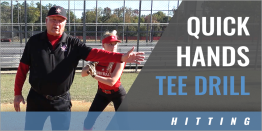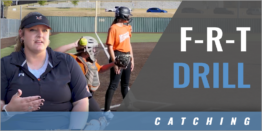|
Many times, in my 35-year career in college and high school athletic administration I have heard coaches share their frustrations about their athletic director. While I would like to think that I was immune from such conversations, I know there were coaches on my various staffs that had varying degrees of appreciation, respect, and positive feelings about me personally and our work together. I can honestly say that I tried to be and do my best each day for each of my staff but that does not mean that every coach received everything they needed from me, despite my best efforts. Like you coaches, often despite your many sacrifices, late nights, early mornings, off-season work, fundraising, parent issues, not every student-athlete would say you were a positive and impactful person in their lives. That is not easy to live with at the end of the day. Our goals as coaches and ADs are to be the best teammates we can be to serve our student-athletes and communities. What follows are a few thoughts from one AD's perspective as to how YOU can make the coach-AD relationship the best possible.
This work we are all about is exciting and potentially life-changing for those you are coaching. You and your AD can be powerful allies in this joint pursuit of impacting high school student-athletes. Perhaps one or two of the ideas mentioned in this article will help you to develop a deeper and more meaningful relationship with your AD. I certainly hope it does, thank you for your daily work and passion around sport and student-athletes. Each one of you have enormous potential to be a person of lifelong impact in the lives of others. "Sport has the power to change the world. It has the power to inspire; it has the power to unite people in a way that little else does. It speaks to youth in a language they understand. Sport can create hope, where once there was only despair. It is more powerful than governments in breaking down racial barriers. It laughs in the face of all types of discrimination."
About the Author Kevin Bryant, CMAA, is an adjunct professor at Pacific University (Forest Grove, OR.) in Sport Leadership and Management (SLAM). Pacific is an NCAA D-III school. Bryant was named Athletic Director of the Year twice in the State of Oregon (2005, 2020) and has received two national awards from the NIAAA and NFHS for his work on a local, regional, and national level in high school athletics. Bryant is married to Sara for the past 43 years, is the father of three children now in their thirties and he and Sara have enjoyed their two grandchildren, Oliver 9 ½ and Blythe 6 ½. Besides loving his SLAM students, he is an avid Spin Biker and Pickleball lover. He can be reached at brya6641@pacificu.edu.
|







